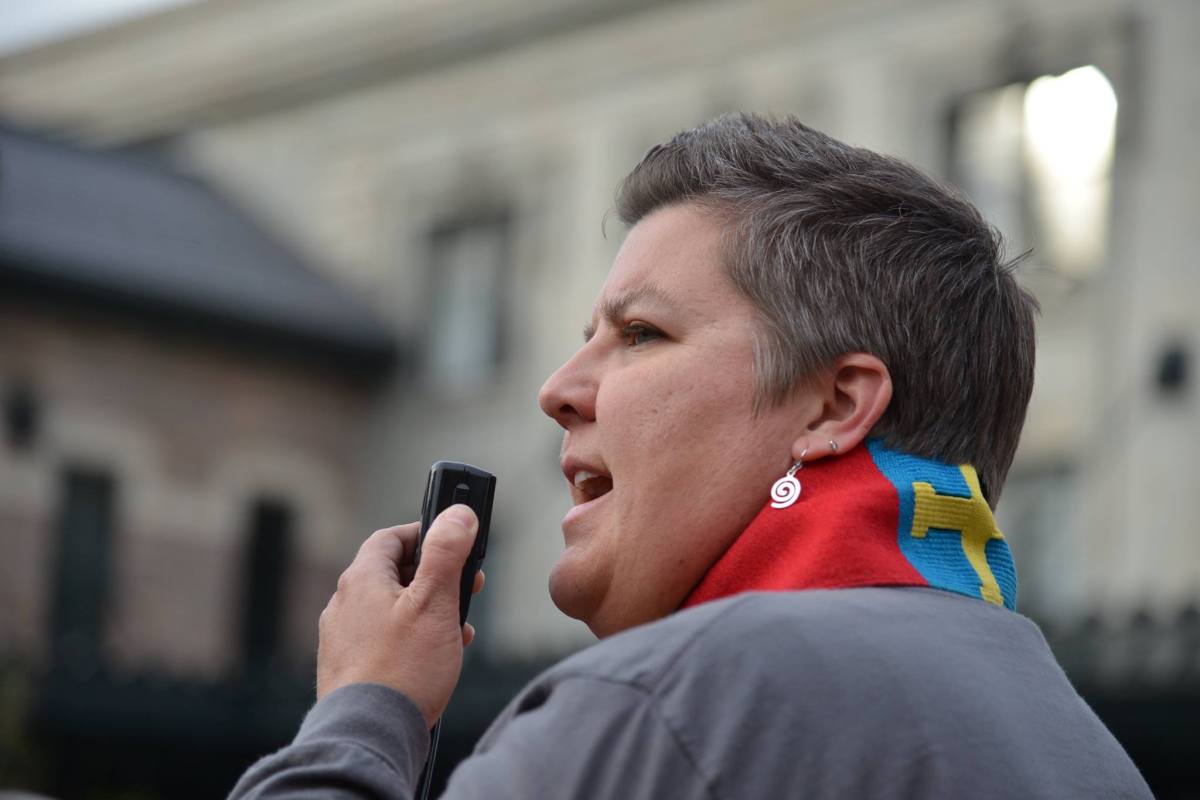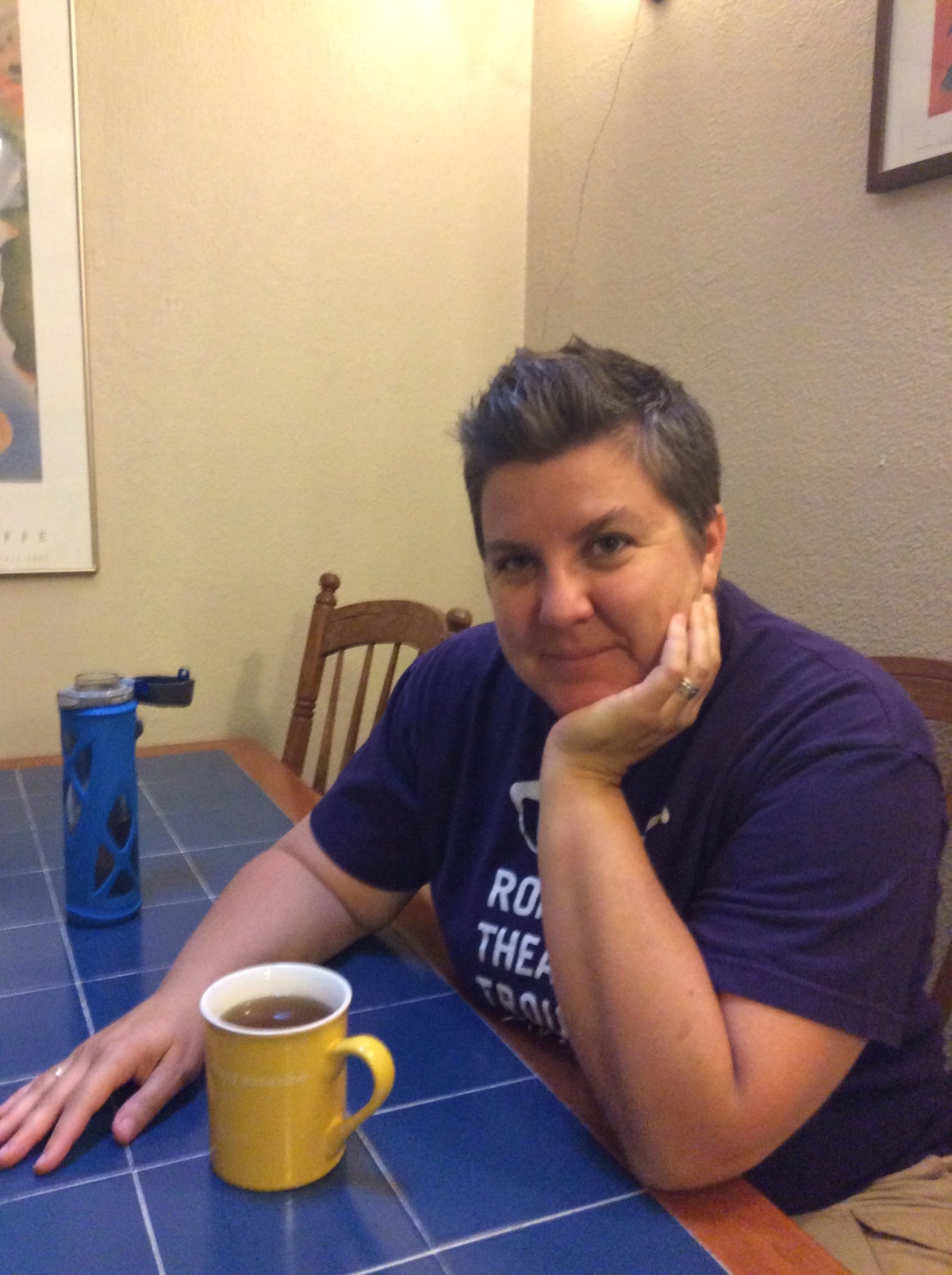Dale Fredrickson describes himself as a pastor by day and a poet by night. But, he knows that both roles intersect in all that he is and does. A published author of three books, I asked him to describe how this works as a practical matter.
I like to think about highs and lows and pains and aches. Then, I use my mind to help me think about the world so it comes up naturally. As a young pastor, I started to write the pastoral prayer moment and I started to think about what’s going on in our world and in people’s lives and the more honest I got in terms of it, I started to get more poetic. It’s not really good in a pastoral prayer to name “Suzy’s got a knee surgery and Tom can’t stand his son right now.” If you’re more poetic, you can lead people to mystery and beauty and truth. That’s when I started to think, “Ahh, this is who I am.” Then, I took on trying to be more poetic in my sermons as well and studying things that move me the most.
For me, the poetic images often in a way that you hear a comic. When you hear comedy, it takes you about ten minutes to realize you’re laughing about things you shouldn’t really be laughing about. [This] is the same way I think poetry works in congregations and in people’s lives. It moves us and warms us to a vision of beauty and opens us in ways we couldn’t otherwise be opened.
The way I think about it is, there’s a rhetoric that bends and there’s a rhetoric that breaks. When you work with people and human life and when you’re working for transformation and change, I have found it is authentic to me that I want beauty to change the world. I want what I say to place a new vision of seed– something that grows anew.
For me, the straight-forward of “you should do this” never worked for me. And it doesn’t work with my kids. [It] makes you tighten up [and] harden inside.

A married father of two, Fredrickson describes himself as a feeler/thinker from childhood.
My mom tells stories of how I would talk for my younger brother and tell the world about his needs, until a moment when my brother was like, “yeah, I got this.” And now when my brother calls me, who I just love when he calls me, I found myself like– he owns a business, I mean, he is a business man– and I’m telling him the business stuff that I’m reading and he’s just like, “I got this. Did I not say this when I was two?”
So I was always a feeler-thinker when I look back. We always talk about how those childhood inclinations, those essences are essential. I love Listen to Your Life by the Quaker Parker Palmer. That stuff is so good. Who are you? What is your essence? Instead of the way we were taught to think about vocation in some of our church traditions. It’s so helpful.
So I was always using words to paint visions.

Fredrickson talked to me about perceptions that were obstacles to him fully embracing his poetic self.
I got away from it when it was starting to be perceived as not manly and not good to say. It has taken me until my mid-thirties to say, “this is who I am. I am going to be a pastor and poet and I don’t care what people think or say.” I think Iliff was a big part of that.
I asked Fredrickson to explain how Iliff contributed to his self-acceptance.
I found the story of Christianity quite liberative and quite beautiful. So I came to Iliff kind of not understanding some of the aspects of my calling. But [at Iliff], no matter how different you were, you were embraced as a person who had sacred worth and dignity. It was safe here– safe to ask questions. So I always loved that. That allowed me to let that seed within me to flourish and not be afraid of it.
Then it just took me awhile to say, “you know everyone sees the world in a different way and I see Christianity as inherently beautiful and flexible and filled with possibilities and uniqueness.” I think one of the things I came to appreciate is that you can’t judge any religious tradition based on its worst adherents. So that sort of blew my mind. It made me have a deeper reverence and respect for other traditions as well as an even deeper owning of my own.
Iliff gave him an understanding of some of the complexities of this world. Fredrickson found that he still needed to explore the most effective way to pastor in this context.
After I got content, and after I learned the beautiful lessons from Iliff in classes like Race, Gender and Class, I found what I needed most was an imagination. I needed a pastoral imagination to see my life and who I am and what I could possibly do with my life.
Eugene Peterson was the first, in his book, to point me to what it means to develop an imagination for your career– for your vocation– for who you are. That helped me to see that what I got [at Iliff]… isn’t so easily boxed, I had to have an imagination for people too. It’s not this nice, neat box. I had to shape and form it. I had to be more patient to see that seed sprout and bloom in people’s lives.

Fredrickson refined his imagination while serving as youth pastor in Anaheim, California.
Best example is when I left [Iliff], I went to Anaheim United Methodist Church in California. They had a man there named Bob [not his real name], a classic blue-collar white mechanic.
Anaheim is Hispanic 90% Latino/Latina. The white flight from the neighborhood is huge in Southern California. Anaheim had been this stalwart in the 70’s but then everyone had moved away. The church had to face questions of diversity and what they were going to do.
Bob had lived in that neighborhood his entire life. He lived in the same house for 60 years. He had language that was super abrasive to me.
When I heard Bob’s language, I was faced with this pastoral imagination question right away. It was kind of like, Iliff taught me that you ought not say those things and my mom taught me that you shouldn’t say those things.
But the irony of Bob is that he listened to my sermons. He still showed up every week. I was mystified by him. I would think– we’re not on the same team.
Along those same lines, every time, four years in a row, I would take [the youth] on the Sierra Service Project where we served the elderly on Native American reservations. It’s such a wonderful educational experience because you don’t realize that there are pockets of America that are like Third World countries. The young people in the Shoshone tribes are able to move and get jobs but the elderly have to remain. They have terrible living conditions.
I brought the youth and we were able to do things like patch roofs that are raining in their living rooms and make handicap accessible ramps. This is when teenagers are able to see for the first time, here is the really ugly/beauty of the world.
Well, Bob was so concerned about us going every year. I would often think, “What’s going on in you? Don’t you realize that we’re ruining these kids for the rest of their lives [by making sure everyone can participate in this project]?”
That’s what good churches do, you know. We ruin people to see the world in all of its ugly multifaceted dimensions.
Bob would not only make sure that people who wanted to go would be able to go, he would pay large sums of cash for them to go and he didn’t have large sums of cash. He would also make sure that we had enough money to be able to get ice cream on the trip.
So that’s pastoral imagination. In my example, we don’t often get insight and understanding into spiritual formation inside human souls.
I don’t know what it’s like to be a mechanic for 40 years and hear a young pastor tell him he needs to stop his world view. But then something is growing in him– that mystery of that kingdom– that mystery of that love divine. Then he can say, “Even though my language is stuck and caught and all in tension with itself, my actions are bursting forward into something new and wonderful and beautiful.”
So, this makes me think, what if this is the nature of the world? This tension within us. This garden that wants to grow out of us us. But we pastors have to be patient because we can’t see it. We need to have an imagination that they may not speak “Iliffian” but that the tools you gain here can help you to sow those seeds and see them grow in real and powerful ways.
Pastoral imagination is huge. But you have to hold it playfully because in my twenties, I was so serious. I am going to change the world but no– then, I came to realize that changing myself is enough.


